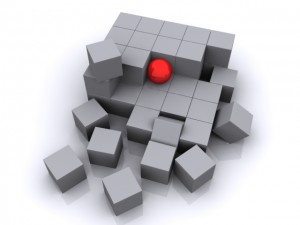Humans have a habit of yearning for simplicity while creating complexity.
We subscribe to stereotypes because they create shortcuts we don’t have to spend analysis (time and thought) on.
 We reject stereotypes (when we do) because we recognize they are too limiting and frequently cruel or unfair.
We reject stereotypes (when we do) because we recognize they are too limiting and frequently cruel or unfair.
The fact is, stereotypes hang on because we meet enough people that fit them enough we are reinforced more than we are corrected.
That said, not all stereotypes are negative (though all are limiting): we have the sacrificial mother, the doting father, the cute couple, the venerable sage.
Likewise with understanding humans through the Myers-Briggs Personality Typing system, we see how different groups of characteristics can provide insight without prescribing a value-judgement.
The four spectra, eight options total, works out to 16 combinations or sets of the four letters.
These 16 divide evenly into four groups of personalities that have their own distinguishing characteristics.
Convention in M-B discussions does this dividing primarily by combining two letters and describing the characteristics common to types sharing that pair of traits:
- SJ
- SP
- NF
- NT
These groups conform roughly (depending on whom you read) to the series of divisions throughout history where prominent thinkers also divided humanity into four groups in order to make generalizations.
The most common (or popular?) one when I was in school was an indirect descendant of the “humors” theory using the original Greek terms Choleric, Sanguine, Melancholic, and Phlegmatic. Thankfully with a broader application and a more complex set of assumptions than personality being caused by an “excess of certain fluids in the body.” (Which was the original explanation.)
The four M-B groups have also been named by various writers and researchers
- Stabilizers (aka Guardians or SJs)
- Innovators (aka Artisans or SPs)
- Catalysts (aka Idealists or NFs)
- Theorists (aka Rationals or NTs)
I expect you had some kind of reaction to one or more of those labels.
After all, words are essentially value-judgements, and even if you “typed” yourself based on the previous post and felt reasonably comfortable with its accuracy, once one sees the category labels there can at times be a subtle shift– or at least the desire to shift– toward a name or type you perceive as having more value.
Granted this is not always the case. Isabel Meyers, the main researcher behind the theory, suggested that many people are “type patriotic,” automatically seeing their own type as best. She felt this was right and correct, as we each are living those “bests,” but that it shouldn’t blind us to the value of other types.
Posts later this week will go into more detail, both about the S-types (SJ & SP) and the N-types (NF & NT).
